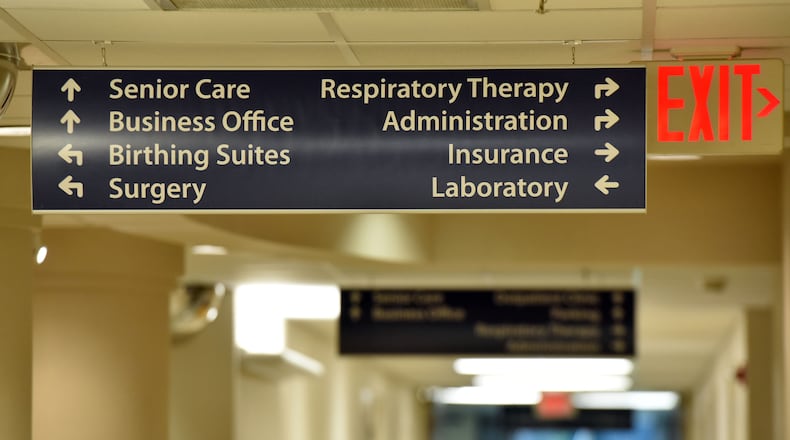On Feb. 11, 2014, Atlanta was covered with ice and snow for the second time that snowjam winter. On that same cold day, House Republican leaders in a mostly empty state Capitol introduced a well-timed anti-Obamacare bomb.
House Bill 990 declared that Medicaid expansion, an option under the Affordable Care Act that might extend health coverage to 600,000 uninsured Georgians, could occur only by an act of the General Assembly. Several theories accompanied the legislation:
- The bill offered cover to Gov. Nathan Deal, who was facing a primary challenge, then well-funded general election opposition from Democrat Jason Carter. The incumbent governor could shrug at any audience and say, "It's out of my hands."
- If Carter won, any attempt by the former state senator to expand Medicaid would be thwarted from the outset.
- HB 990 was a more rational alternative to House Bill 707, a bill drawn up by state Rep. Jason Spencer, R-Woodbine, that would have barred any state employee from uttering the word "Obamacare" except as a curse.
HB 990 passed. So did a less rabid version of HB 707 — which nonetheless did shut down a University of Georgia program, operating under a federal grant, that helped the uninsured navigate the byways and alleys of the Affordable Care Act.
Deal was re-elected, and Earth resumed its orbit. All were happy, except for Democrats and a few indigent-heavy hospitals that crept ever closer to insolvency — especially in rural Georgia.
Fast-forward to today — well, earlier this month. That's when the re-elected governor signed a $21 billion budget bill that included language authorizing the Department of Community Health to negotiate a Section 1115 waiver with the U.S. Department of Health and Human Services. With the object of drawing down more Medicaid funds.
Other states have used that particular waiver to pursue the expansion of Medicaid. Georgia officials say they wouldn’t — that they would be pursuing the cash to fund an experimental hub-and-spoke system of hospitals, including Grady Memorial, to keep the uninsured from bankrupting those health care institutions with unpaid bills.
Certain Republicans remain suspicious. Last week, the aforementioned Spencer obtained an opinion from Attorney General Sam Olens' office stating that a budget bill can't be used to change established state law — i.e., HB 990.
“Whoever slid that in was misinformed, or maybe they were trying to pull a fast one,” Spencer said in a telephone interview.
Last week, Spencer and three other Republican House members — David Stover of Newnan, Scot Turner of Holly Springs and Michael Caldwell of Woodstock — sent a note to state Medicaid chief Clyde Reese, with a copy for Deal.
The missive was essentially a threat of court action if state officials proceeded. “This letter is an advisory warning letter that we probably ought not pursue this until we have a debate on it,” Spencer said. “If we’re going to do Medicaid waivers that could potentially lead to Medicaid expansion under the Affordable Care Act, then we need to have that debate.”
State officials we’ve talked to say that the quiet directive contained in this year’s budget bill was neither nefarious nor unprecedented. But they seem to acknowledge the validity of Spencer’s legal point.
Talks between state Medicaid and federal officials are likely to continue, but no formal action would be taken before the 2016 session of the Legislature, we’re told. For the rest of the year, an already volatile political topic will be driven even deeper underground.
Details of Georgia’s Medicaid experiment are already scarce, but we may have come across a nugget. The governor has rejected Medicaid expansion because, Deal says, the state matching funds that ultimately would be required would bust the budget.
New matching funds will still be required to nail down any new, sustainable Medicaid dollars that would fund this new spoke-and-hub system of hospitals to care for the uninsured. Yet state dollars have been ruled out, we’re told. Local entities — counties, cities or the hospitals — will have to pony up the cash.
But the specifics may have to wait for the debate promised on that snowy February day.
About the Author
The Latest
Featured




